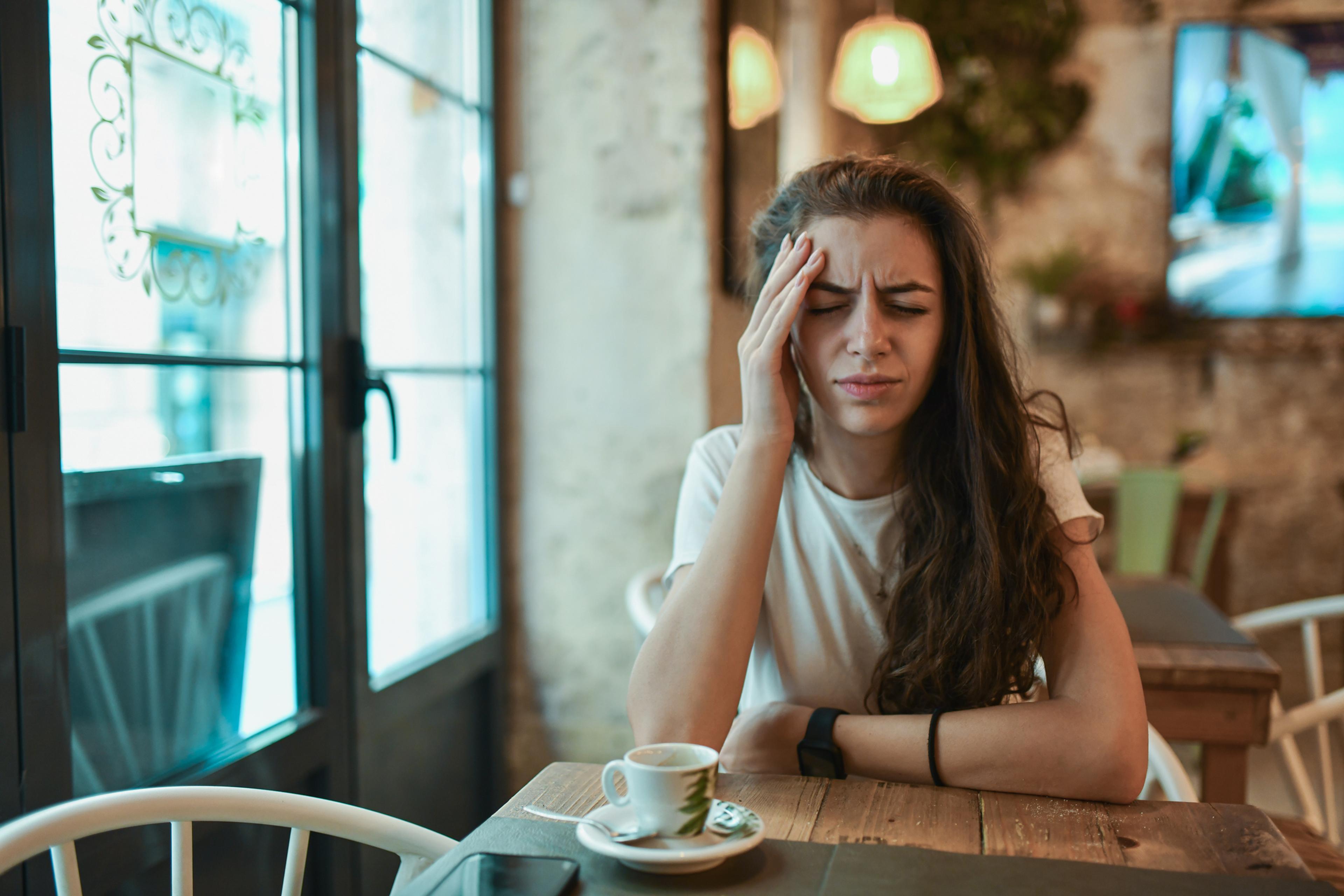The Link Between Alcohol and Anxiety
Jake Newby
| 4 min read

Key Takeaways
- An estimated 20% of people who suffer from anxiety use alcohol to cope with their symptoms.
- Drinking alcohol may relieve anxiety in the interim, but that short-term numbing effect is often outweighed by anxiety after drinking.
- Hangxiety is a feeling of stress some people experience as part of a hangover.
- The best way to avoid feelings of alcohol-related anxiety and hangxiety is to abstain from drinking.
It’s a trope as old as time, right? If you’re feeling anxious, have a drink or two to calm your nerves.
Drinking alcohol may relieve anxiety in the interim, but that short-term numbing effect is often outweighed by anxiety after drinking, especially following a bout of binge drinking. This is where the term “hangxiety” comes from.
Alcohol and anxiety are closely linked in many ways. Whether you’re wondering how effective alcohol is at relieving your anxiety or worried it’s doing the opposite for you, read ahead to learn more.
Alcohol as a coping mechanism for anxiety
An estimated 20% of people who suffer from anxiety use alcohol to cope with their symptoms, according to the American Addiction Centers (AAC), which reports that people with anxiety are three times likelier to struggle with alcohol at some point in their lives.
It’s a misnomer to think drinking alcohol – especially in excess – can ease feelings of social anxiety. Using alcohol to cope with social anxiety is associated with increased substance use and more consequences among young adults, according to the National Institute on Alcohol Abuse and Alcoholism.
Is alcohol a stimulant or a depressant?
Some people believe stimulant medication reduces social anxiety, which is not what they are approved for. In any case, individuals who think alcohol has that effect are mistaken.
Alcohol is classified as a central nervous system depressant, according to the Addiction Center. This means it slows down brain functioning and neural activity by enhancing the effects of the neurotransmitter in the brain known as GABA, which slows down brain activity. This is why we feel more relaxed while drinking. Alcohol’s sedating effects can lead to cognitive impairment and can also make us feel anxious and jittery, according to the Cleveland Clinic.
How does alcohol cause hangxiety?
Hangxiety is a feeling of stress some people experience as part of a hangover. It can lead to a imbalance of stress hormone activity in the body and make it difficult to regulate increased feelings of anxiety. Hangxiety is typically caused by three factors, according to the AAC:
- Increased cortisol levels: Heavy drinking disrupts our body’s cortisol distribution process by increasing cortisol levels and preventing them from declining normally. Elevated cortisol changes the way neurons send signals throughout the body by making the neurons more active, per the AAC. This overactivity can be perceived as anxiety and restlessness. Increased cortisol levels can also negatively REM sleep, which helps improve our mood, memory, focus and cognition.
- Decreases in GABA in the brain: We feel relaxed and calm while we drink because alcohol of the aforementioned boosted GABA and slowed down brain activity. When we drink heavily and/or frequently, the balance our brain tries to keep shifts toward GABA, causing the brain to try to restore balance by increasing the amount of glutamate –an amino acid that helps regulate anxiety – in the brain. With fewer GABA receptors, it’s harder for alcohol to calm us down, so we drink more to maintain the same effect. Meanwhile, with more glutamate, the brain becomes more stimulated. When alcohol wears off, it’s no longer stimulating GABA and slowing down your brain, yet the extra glutamate continues to speed up brain activity. This pattern causes us to wake up panicked in the middle of the night after a night of binge drinking, according to the AAC. The anxiety that results can last for several days after alcohol has left the system.
- Increased heart rate: A 2020 study found that even one drink is enough to increase a person’s heart rate, due in part to dehydration, which decreases the amount of blood circulating through the body. The heart beats faster to try and offset this.
Additionally, hangxiety is caused by psychological factors such as:
- Regret and worry based on what you did and conversations you had while drinking.
- Lack of sleep; poor sleep or lack of sleep is itself a risk factor for anxiety.
- Mental health conditions such as depression and anxiety.
The best way to avoid feelings of alcohol-related anxiety and hangxiety is to abstain from drinking. If you are struggling to stop drinking, start by having a conversation with your primary care provider. They may recommend a combination of therapy and medication, as well as refer you to a specialist.
Blue Cross Blue Shield of Michigan and Blue Care Network can help members find an in-network mental health professional by calling behavioral health access lines listed below:
PPO: Behavioral Health Access Line | 1-800-762-2382
- A free and confidential resource that’s just a call away when you need immediate support. Behavioral health professionals answer, 24/7.
HMO: Behavioral Health Access Line | 1-800-482-5982
- Connect with a behavioral health clinician if you need help finding a mental health or substance use provider.
- Behavioral health clinicians are available for routine assistance from 8 a.m. to 5 p.m., Monday through Friday. For urgent concerns after hours, clinicians are also available 24 hours a day, seven days a week.
Learn more about mental health and options you have as a member to seek help at bcbsm.com/mentalhealth.
Related:
Photo credit: Getty Images





